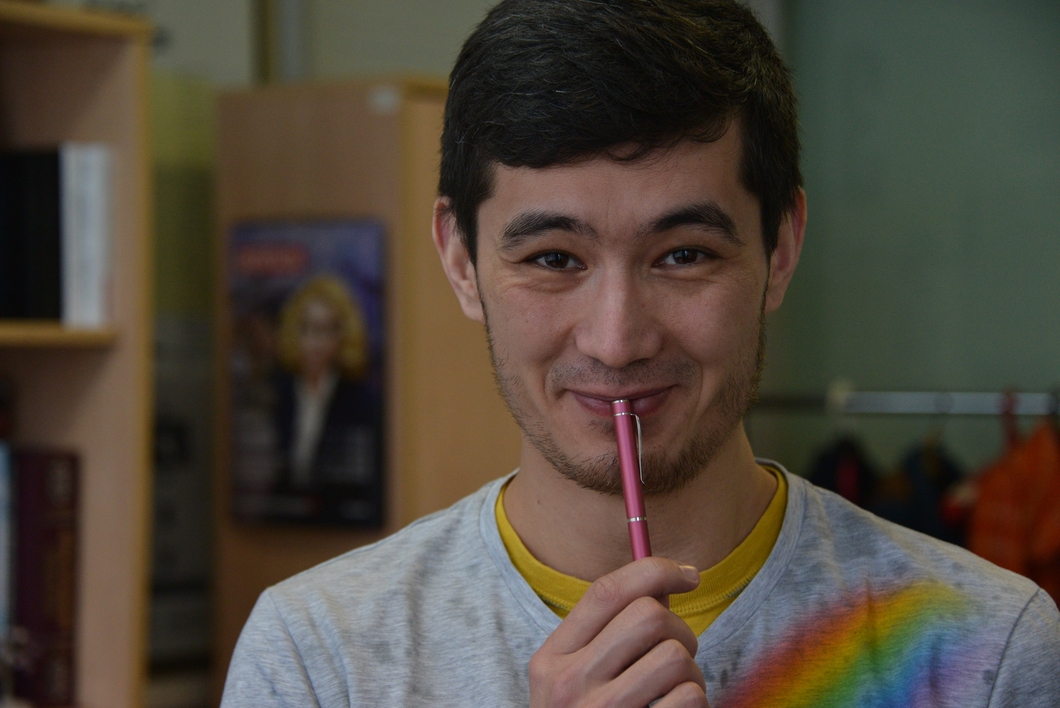
By Ella Shen
A few weeks ago, Amnesty International, along with other international organizations, has expressed heavy concern over the possibility of danger, including torture amongst other human rights violations, to journalist Khudoberdi Nurmatov (also known as Ali Feruz), if forcibly returned to Uzbekistan.Nurmatov’s lawyer, Maria Kurakina, stated, “there has been no extradition request from Uzbekistan. There have been no charges against him on alleged involvement into extremist activities or justification of terrorism. His staying in Russia has been absolutely legitimate as he applied for asylum and the decision is still pending.” After Nurmatov’s Uzbek passport was stolen in 2012, under threat of arrest, he did not travel to Uzbekistan to retrieve a new one and instead applied for asylum in Russia, his mother’s homeland and his country of birth.
On March 17, Dmitry Peskov, the press person of Vladimir Putin, announced that “the Kremlin is unaware of any asylum application submitted by Nurmatov.” These claims were refuted by Novaya Gazeta which had published the correspondence between the President’s Administration and Dmitry Muratov, the editor-in-chief, on Nurmatov’s asylum request.
Ali Feruz’s story is not uncommon.
Uzbekistan is ranked 166th out of 180 countries in RSF’s 2016 World Press Freedom Index. There have been multiple documented reports on the widespread use of torture in Uzbek prisons. Several Uzbek citizens who had been seeking asylum or had been granted refugee status have gone missing in Moscow to reappear in Uzbek jails.
In Amnesty International’s Fast-Track to Torture: Abductions and Forcible Returns from Russia to Uzbekistan, published in April 2016, research found that hundreds of asylum-seekers, refugees and labor migrants have been abducted or forcibly returned from Russia to Uzbekistan since 2014 in total violation of Russia’s international human rights obligations. Additionally, Russia frequently employs administrative means, such as deportations for administrative offences, to return individuals to Uzbekistan where they face precedented risk of torture. Furthermore, Russia does not conduct effective investigations into these abductions when raised.
In at least three recent cases of abduction and forcible return from Russia to Uzbekistan since March 2015 (Davron Komoliddinov in March 2015, Sarvar Mardiev in March 2016 and Olim Ochilov in July 2016), the individuals were not apprised of their right to apply for State protection, even though they, their legal representatives and human rights organisations had expressed a “perceived risk of irregular removal.”
In the case of asylum seeker Sarvar Mardiev, officers of the Russian Federal Security Service (FSB) apprehended him on March 4, 2016, but his whereabouts were undisclosed until October 2016, when the Uzbek authorities confirmed his detention in Kashkadaria. Olim Ochilov, a 27-year-old Uzbekistani asylum seeker, was forcibly returned from Russia to Uzbekistan despite interim measures issued by the European Court of Human Rights. Russian authorities ignored the European Court’s decision and proceeded with Ochilov’s forcible return in direct violation of legal obligations. Ochilov’s Russian lawyers have been unable to establish his whereabouts in Uzbekistan.
In the case of forcible return of Davron Komoliddinov, human rights defender Nadezhda Atayeva of Association for Human Rights in Central Asia (AHRCA) told Forum 18 that he was indeed being tortured after an unfair trial.
Amnesty Interational’s research has verified the continuing practice of co-operation and collusion between the Russian Federation and Uzbekistan, for the purpose of forcibly returning individuals to Uzbekistan where they are at real risk of torture or other ill-treatment. Amnesty International calls on the Russian Federation to:
- Fully and systematically ensure that no one within the Russian Federation’s jurisdiction is forcibly returned, by means of extradition or otherwise, to any country, including Uzbekistan, where they would be at risk of torture or other ill-treatment as well as unfair trials or any other serious human rights violations, and set up transparent and effective monitoring mechanisms to ensure compliance with such measures;
- Stop automatically detaining and deporting individuals, including asylum-seekers, who have been declared “undesirable aliens” to their country of origin, including Uzbekistan, without assessing in earnest the risk of torture upon return and refrain from their forcible return where the risk exists, and establish an effective mechanism whereby an individual declared an “undesirable alien” is granted the right to appeal the decision to deport;
- Fully and systematically comply in practice with all Rule 39 interim measures and judgments of the European Court of Human Rights, in particular in relation to cases of return and extradition.
Ella Shen is the Eurasia Regional Action Network coordinator at Amnesty International USA.
******************************************
Ali Feruz, photo by Viktoria Odissonova, Novaya Gazeta.
Such a great story regarding return form Russia,i really like to visit here,as this article contains so many useful information regarding different countries especially Russia,it is more useful for students,as they migrate to different countries for getting an education,so they can easily get the relevant information about that countries through this informative article.As majority of folks are getting their assistance through online resources so they will also find this resource for their academic assistance like Dissertation Help. So individuals can get so many useful information regarding education and career too for their future from this useful article.As i have seen many individuals that they are following online platforms for their every type of assistance and it is the best and reliable way to get your work done.And i am looking for more useful ways to go through with online technology as i have got so many new ways through this article.Thanks for sharing it.
by visiting this sitehelp with c# programming assignment I found cool stuff here keep it up.
This the voice of those who are abused. Thanks Amnesty.